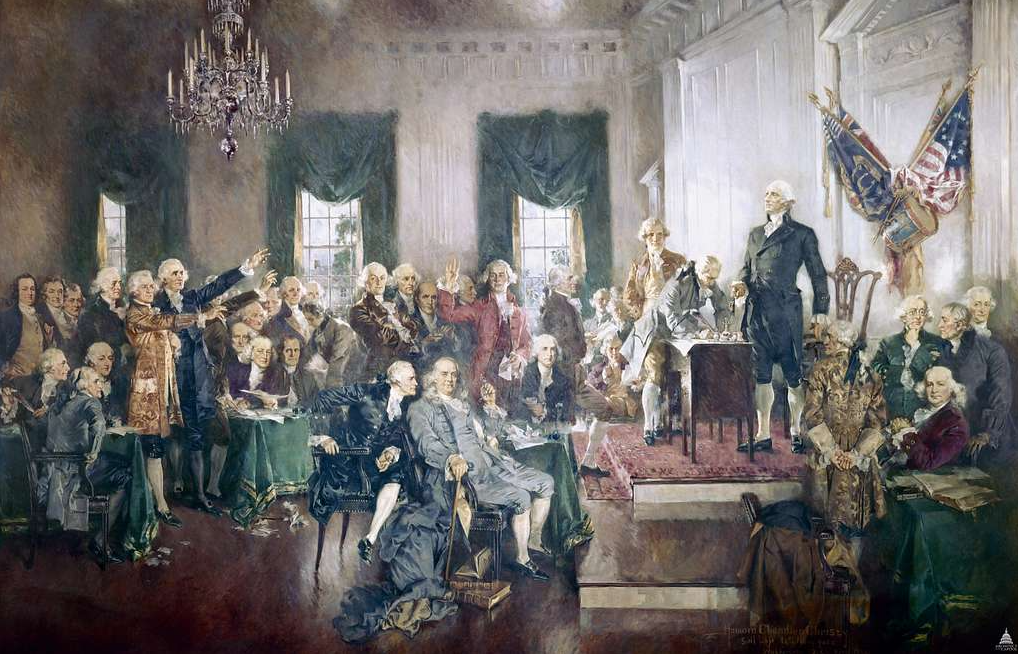“This Constitution … shall be the supreme Law of the Land….”
This language, found in the Constitution’s Supremacy Clause, is of supreme importance. America is “an Empire of Laws, and not of men,” John Adams wrote. This is reflected in the American Constitution, which captures the idea of lex rex – law is king – rather than rex lex – king is law.
In a nation governed by the rule of law, there must be a hierarchy of laws. The law that trumps all other laws is the Constitution itself. Therefore, the most important question is how the Constitution should be interpreted.
As a practical matter, whichever interpretation of the Constitution prevails determines the supreme law of the land. If the Constitution is interpreted properly, then the people have no reason to fear usurpation. But if, as Justice Sutherland warned long ago, the Constitution can be amended under the guise of interpretation, then those who abuse the Constitution are usurping the roll of constitutional interpretation, imposing on the people laws that they did not ratify.
Constitutional analysis began with the text in America’s founding era. If the text could not completely solve the problem, courts examined history to determine the object of the provision and to discern the framers’ intent and the understanding of those who ratified and read it. This approach presupposed that the meaning of the Constitution was fixed and that the people alone, not judges, had the authority to change it.
Much of that changed when Darwinism arose in the late 19th and early 20th centuries. America’s elite law schools, beginning with Harvard, used Darwinism as an excuse to throw out the presuppositions underlying the Anglo-American legal tradition for centuries. Just as living things evolved, they reasoned, so should the law.
And who did they believe was suitable to help the law evolve? Was it the people (as, you know, the Constitution says)? Nah. It was the judges, of course!
That’s how we got to the “Living Constitution” theory. The Constitution’s meaning changes to match the times, even if the words don’t change, this theory holds. By adopting this approach, the courts robbed the people of the right to change the law, imposing an oligarchy where judges alone knew how the Constitution “evolved.” But the document itself never changed!
The Living-Constitution theory is as nonsensical as the idol worship of antiquity. Just as images of metal, stone, or wood clearly did not speak or live, neither does a written document speak beyond what it says on its face, nor does it “live” in any way. But somehow, the nation’s elite law schools fell for this theory, and the people suffered for it.
The Supreme Court’s decision in Roe v. Wade, which read a right to kill unborn children into the Constitution based on the Due Process Clause (which says nothing of the sort), was perhaps the biggest wake-up call that something was awry with the adoption of the Living-Constitution theory. The nation was aware that the Warren Court was taking the Constitution for a joy ride, but the Roe decision was the worst of the worst.
Fortunately, conservatives fought back. Returning to reason, conservatives argued that the Living-Constitution theory was nonsense and nothing more than an excuse for judges to amend the Constitution under the guise of interpreting it.
Conservatives advocated for returning to the method of constitutional interpretation that both history and common sense require: interpreting the document according to its words and original meaning. This is called originalism.
The late Supreme Court Justice Antonin Scalia was the foremost originalist champion. Scalia’s intellectual brilliance and way with words made a persuasive case to lawyers and laymen alike. Along with other leading originalists, Scalia stirred up a movement in conservative legal circles. Now, in 2023, the six conservative-leaning justices on the U.S. Supreme Court either adhere to or highly respect originalism.
If we are to be a nation of laws and not of men, then the Constitution must be interpreted according to its text and original meaning. If the law “evolves” at all, then the power to change it must be vested in the people or in their duly elected representatives. Vesting the power to change the law in judges robs the people of their republic, trading it for an oligarchy.
Justice Scalia has been gone for seven years now. If he can see from Heaven, then I hope he is pleased knowing that in the end, originalism prevailed.
This article is adapted from one originally published at The Alabama Federalist.
Matt Clark is the President of the Alabama Center for Law and Liberty, a conservative nonprofit law firm that fights for limited government, free markets, and strong families in the courts. His column appears every Friday in 1819 News. The opinions expressed in this column are those of the author. The views and opinions expressed here are those of the author and do not necessarily reflect the policy or position of 1819 News. To comment, please send an email with your name and contact information to Commentary@1819News.com.
Don't miss out! Subscribe to our newsletter and get our top stories every weekday morning.









